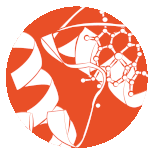Posted at 12 Apr 2013 11:49h
in
Science news
by Jakob
Brendan Borell has written a scathing attack on the WHO, published in Slate last week. Because of the basics of the story, I thought I knew what I was in for: someone is advocating the use of a cheap “natural” remedy instead of a well-understood synthetic drug. They’re anecdotally reporting extreme efficacy and no drawbacks. Meanwhile, medical authorities are tearing out their hair and imploring people to stick to the stuff that works.
![By Eddideigel (Own work) [GFDL (http://www.gnu.org/copyleft/fdl.html) or CC-BY-SA-3.0 (http://creativecommons.org/licenses/by-sa/3.0)], via Wikimedia Commons](https://www.tstmarchive.talksciencetome.com/wp-content/uploads/2013/04/512px-Wormwood_shoots.jpg) That’s how stories about herbal medicine typically go in my world. But this isn’t quite one of them.
That’s how stories about herbal medicine typically go in my world. But this isn’t quite one of them.
“Although the tea itself has traditionally been used in treatment, not prevention, in China, a randomized controlled trial on this farm showed that workers who drank it regularly reduced their risk of suffering from multiple episodes of malaria by one-third.”
Randomized controlled trial you say?
“Soon afterward, a researcher named Patrick Ogwang with the Ugandan Ministry of Health documented a decline of malaria incidence among almost 300 workers drinking the tea, and followed up with the randomized controlled trial demonstrating





![By Eddideigel (Own work) [GFDL (http://www.gnu.org/copyleft/fdl.html) or CC-BY-SA-3.0 (http://creativecommons.org/licenses/by-sa/3.0)], via Wikimedia Commons](https://www.tstmarchive.talksciencetome.com/wp-content/uploads/2013/04/512px-Wormwood_shoots.jpg) That’s how stories about herbal medicine typically go in my world. But this isn’t quite one of them.
That’s how stories about herbal medicine typically go in my world. But this isn’t quite one of them.